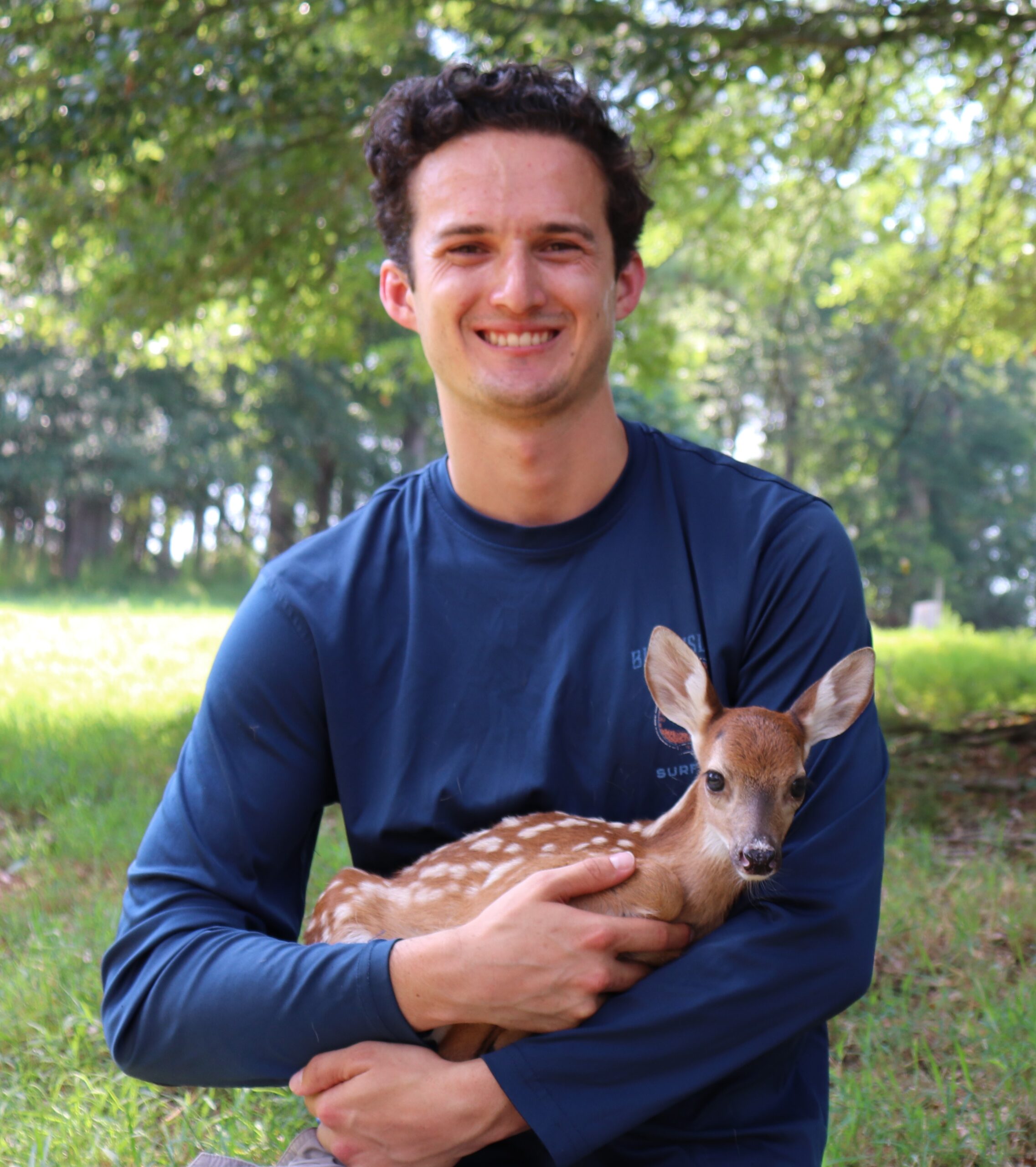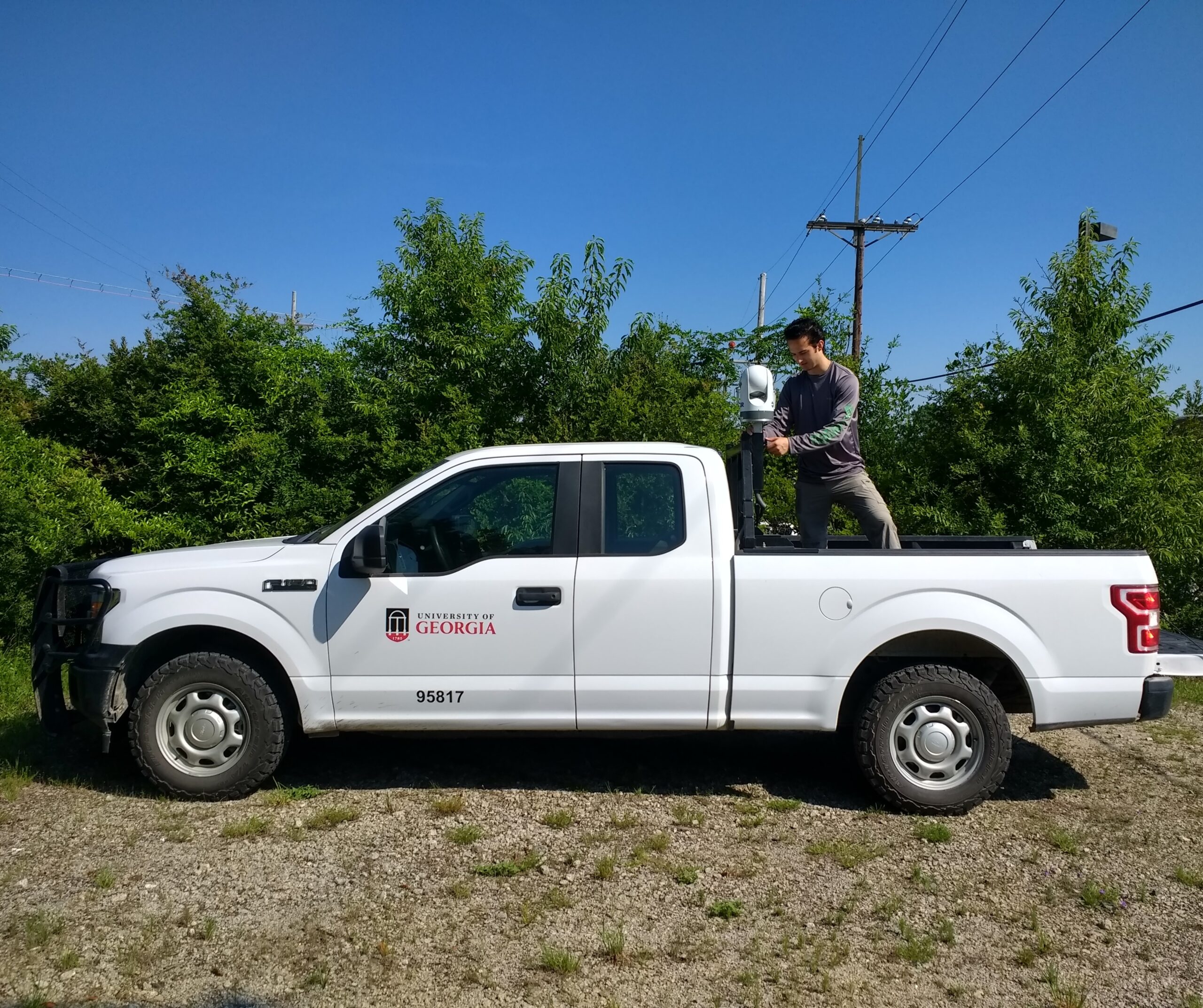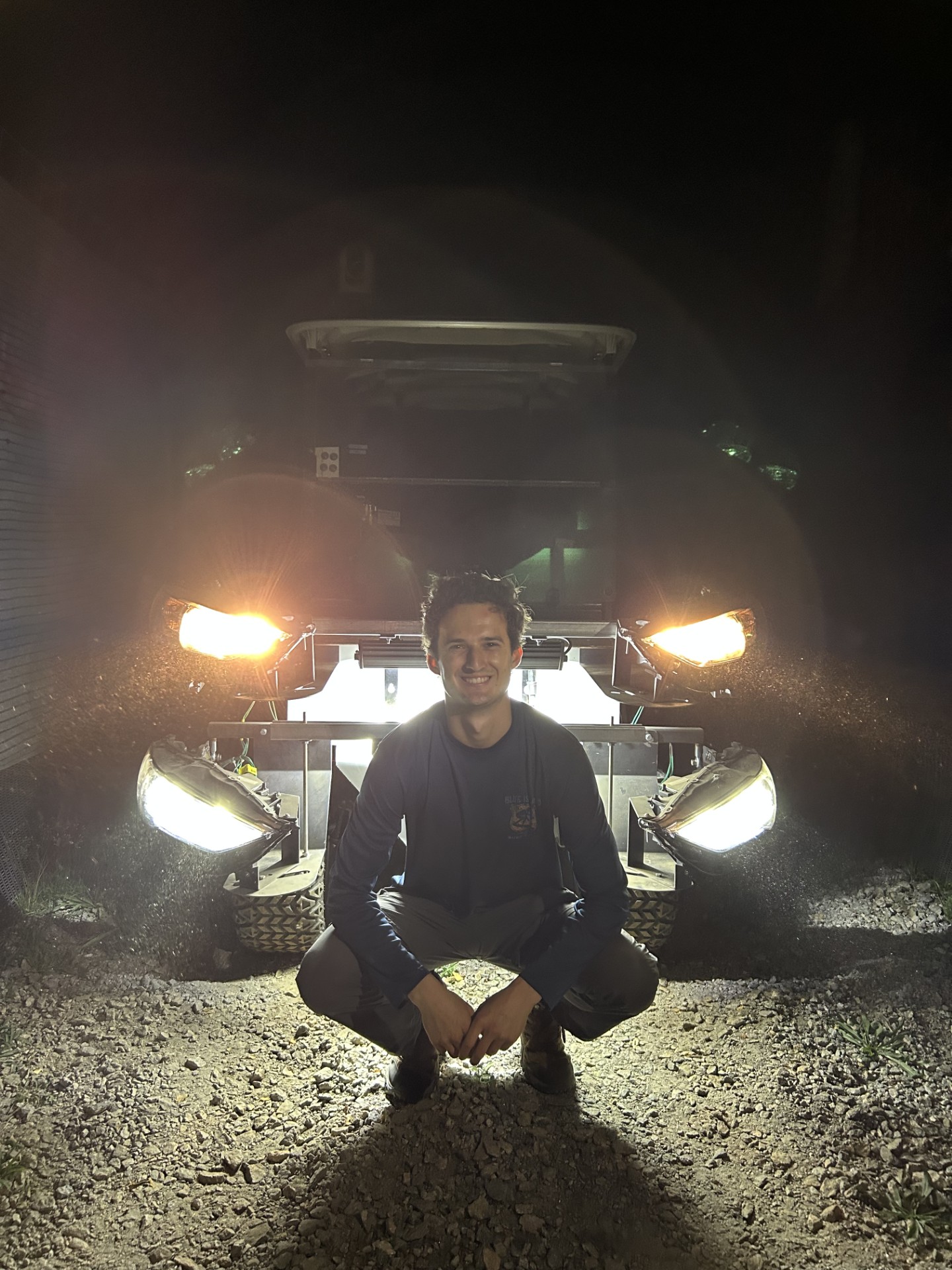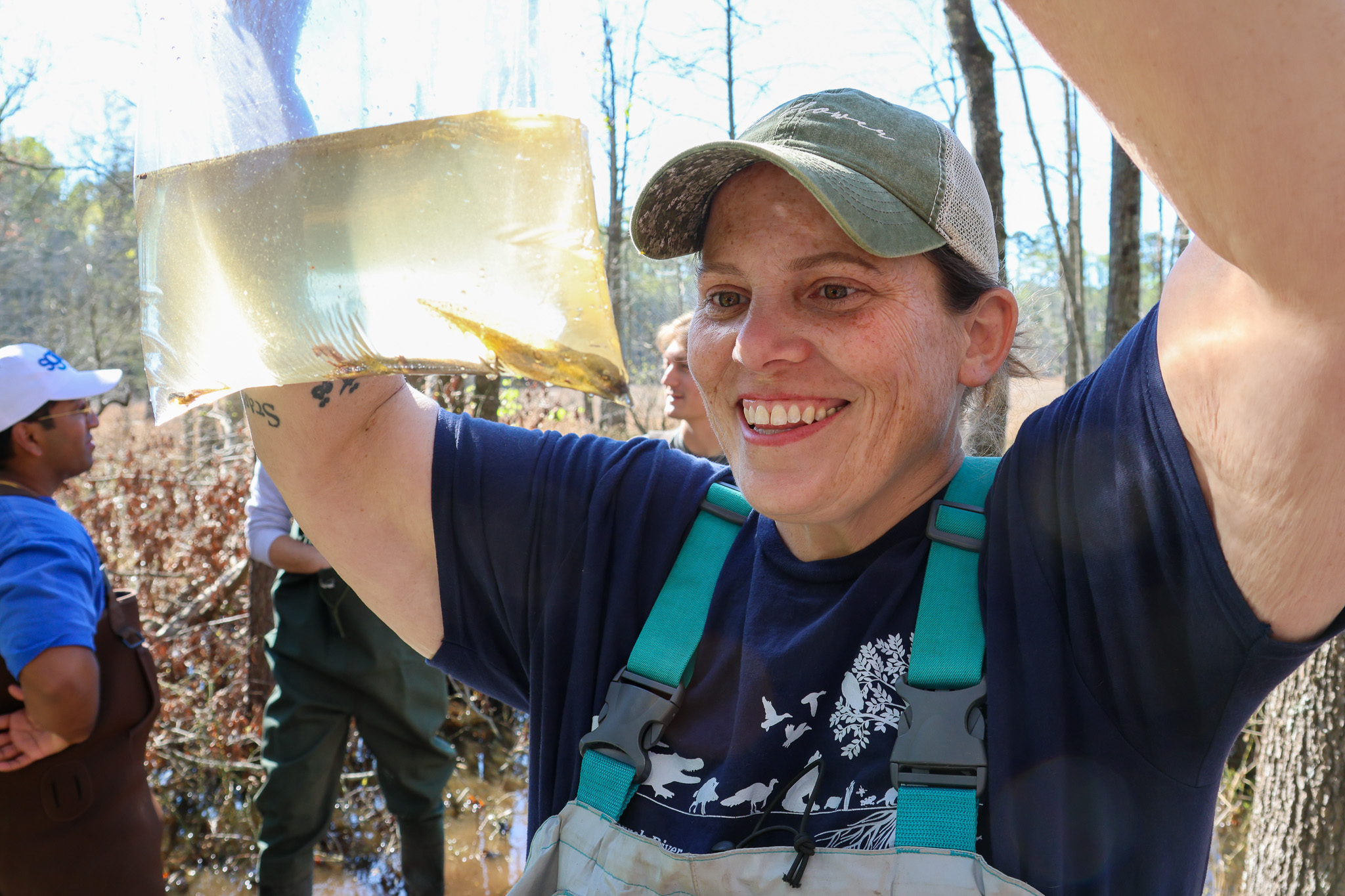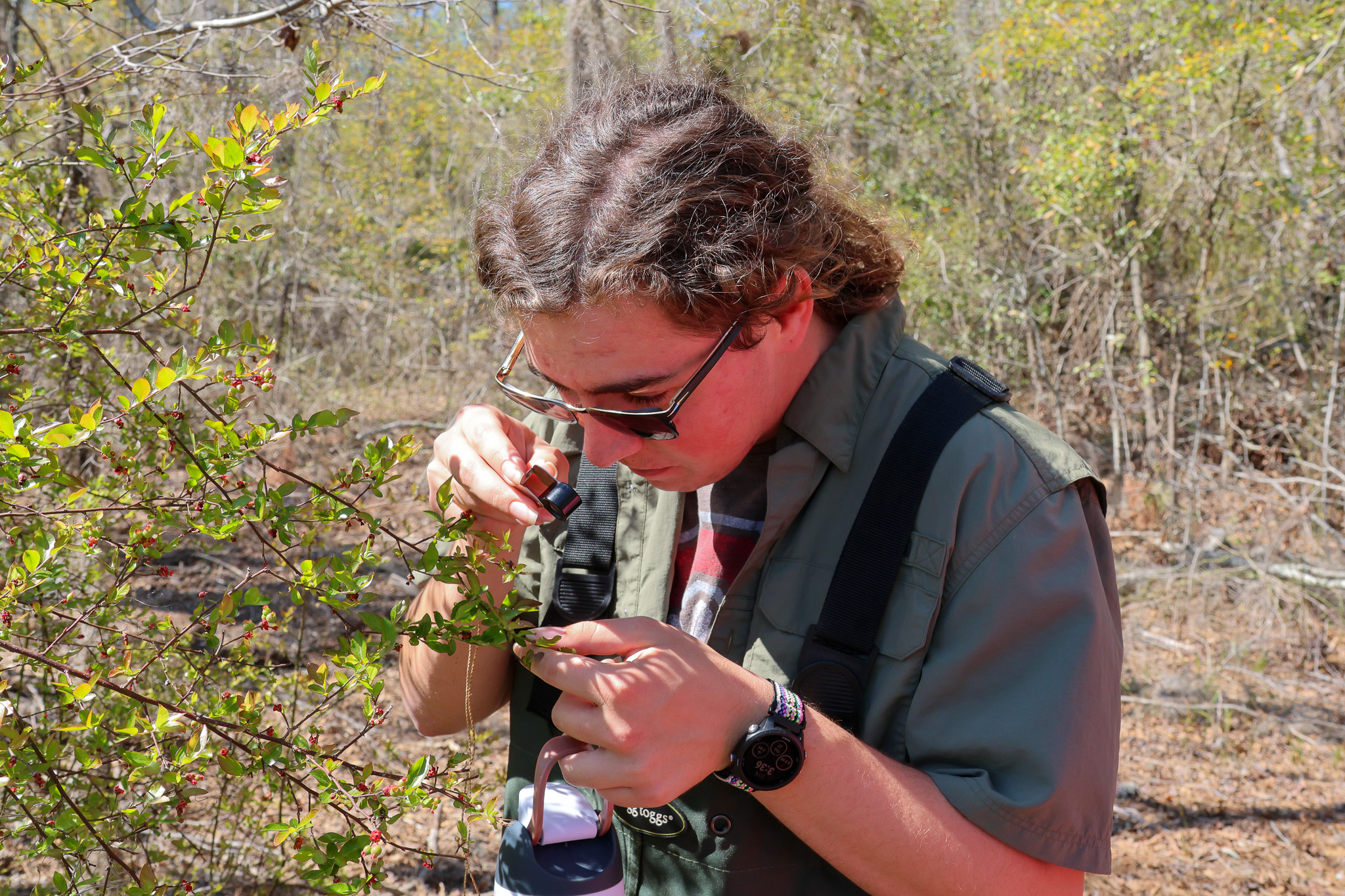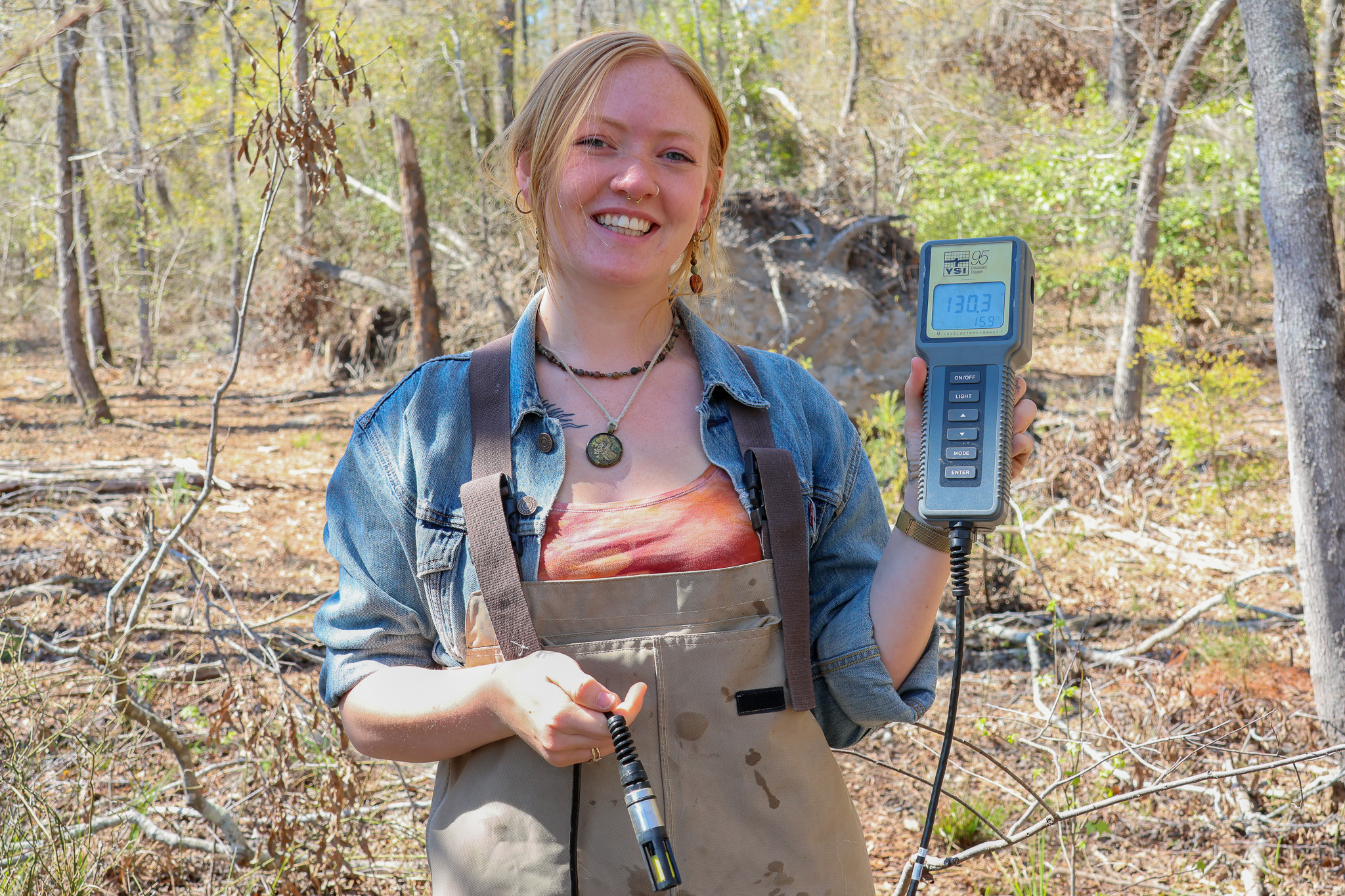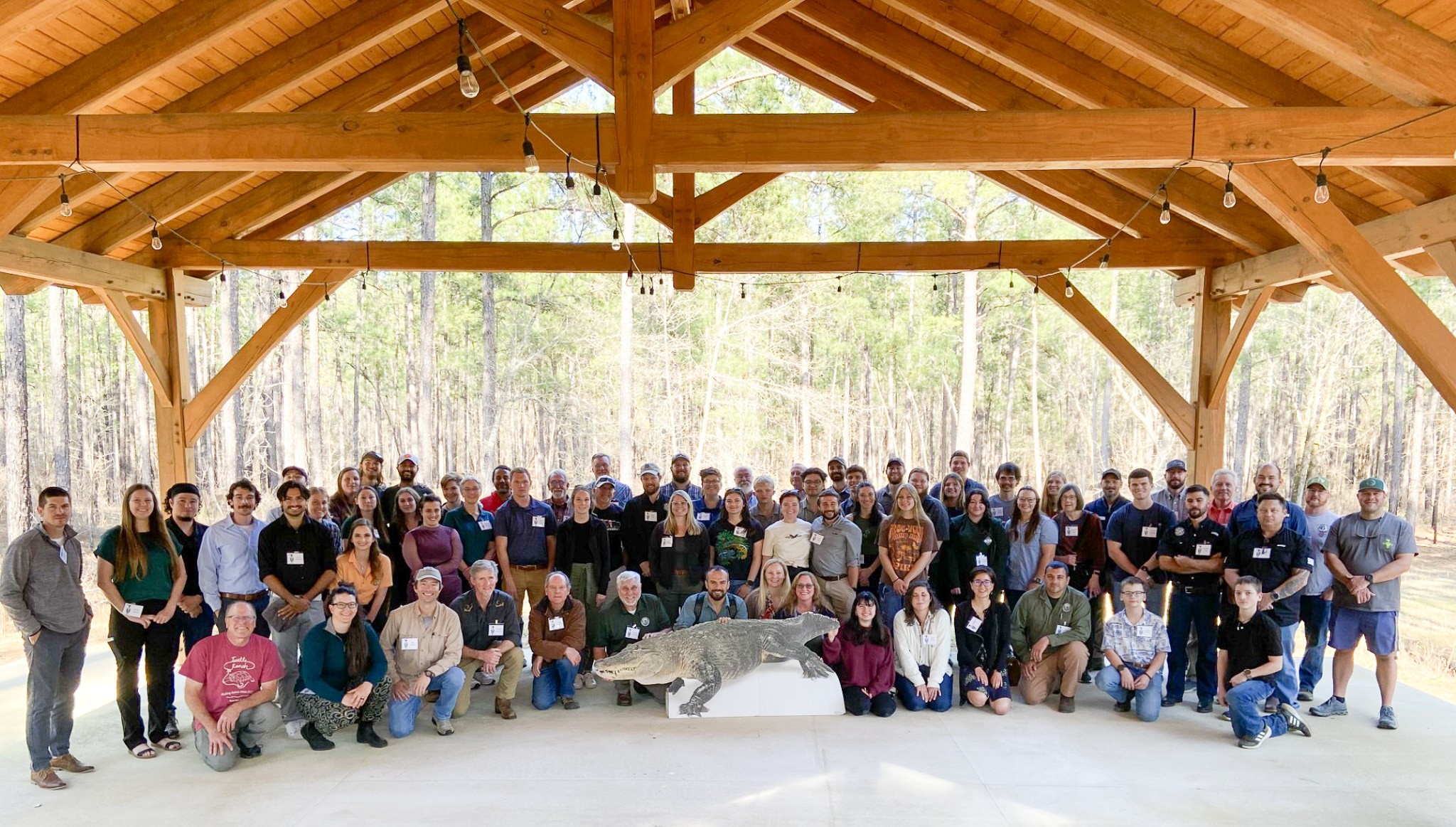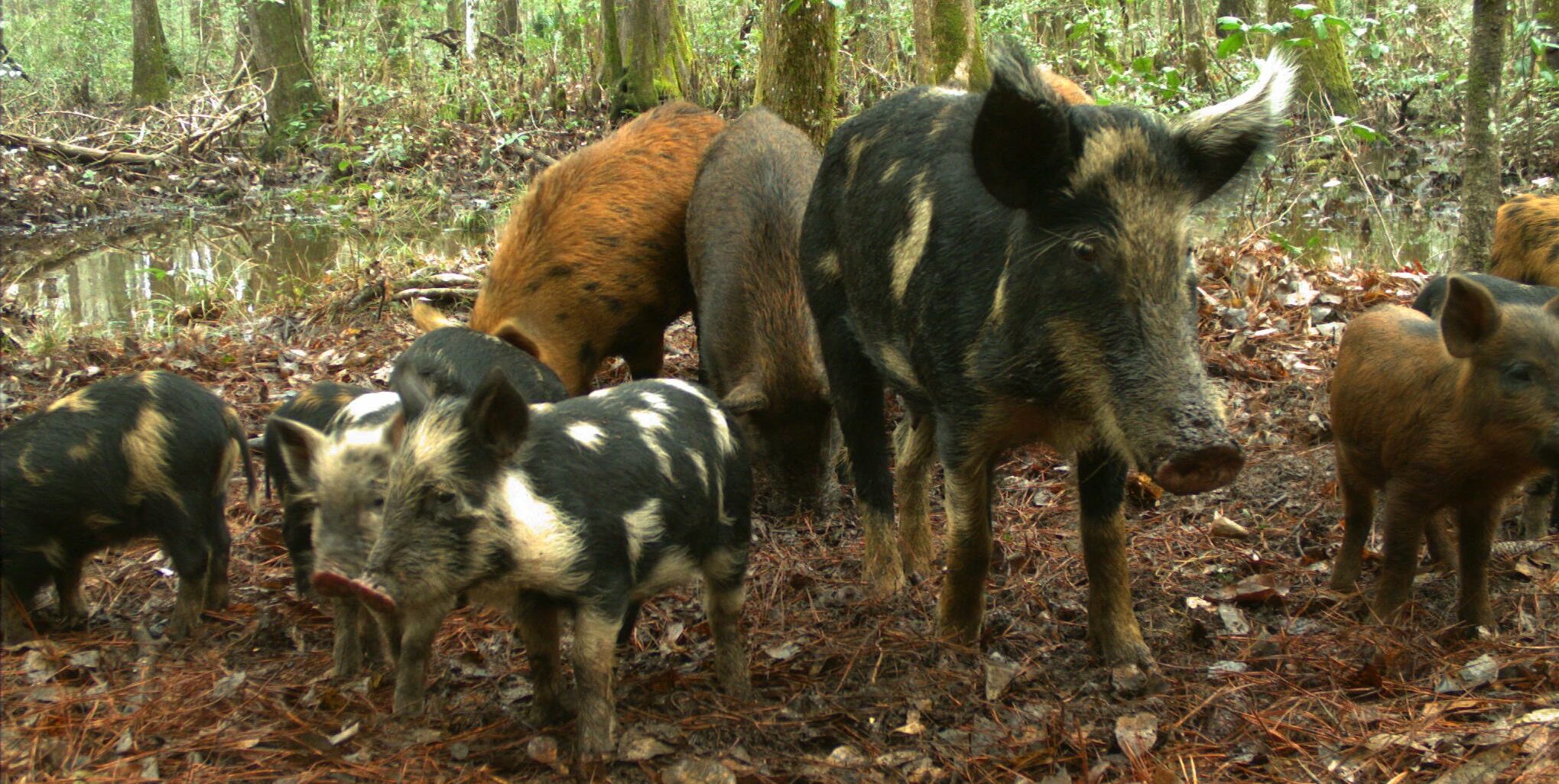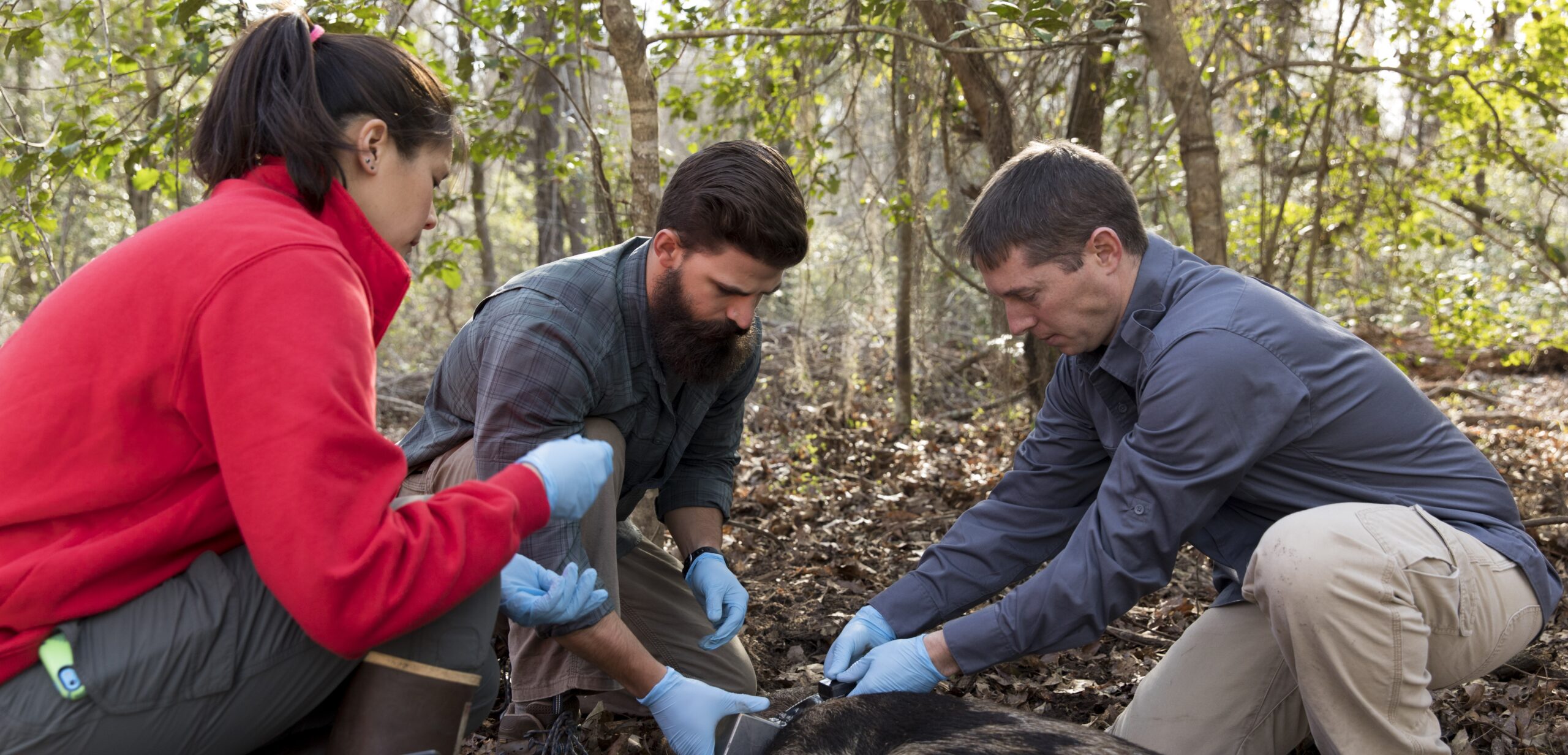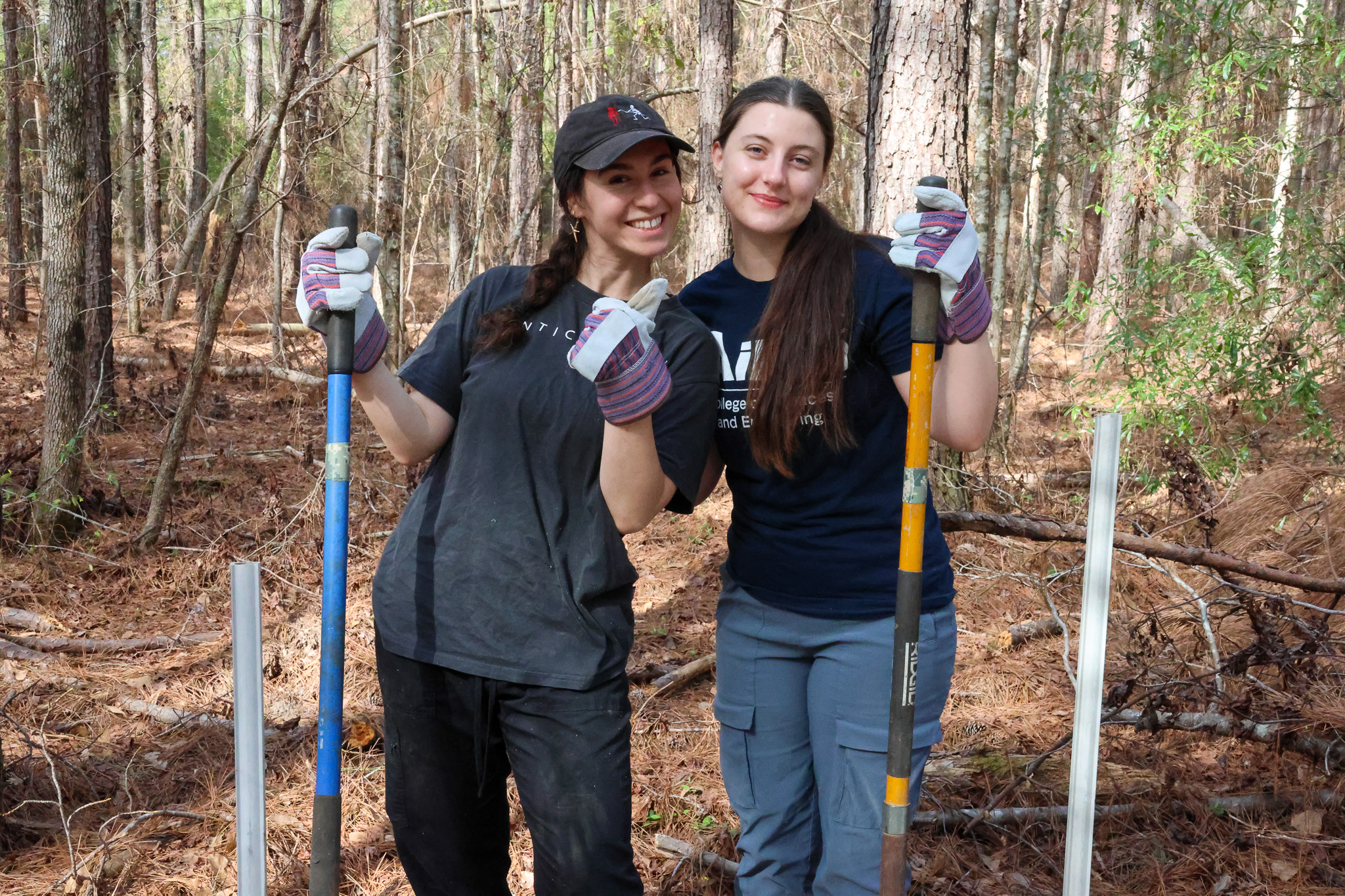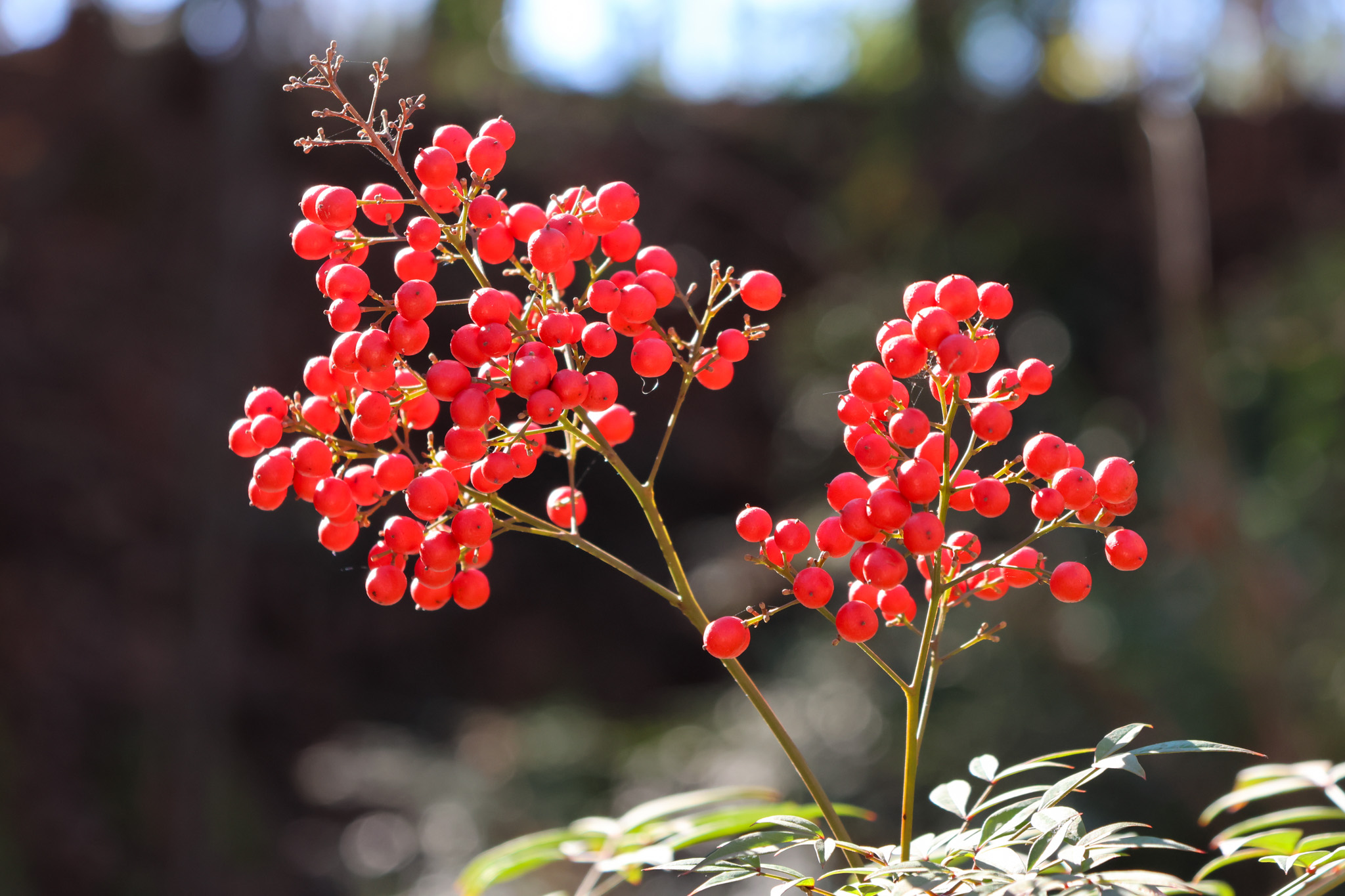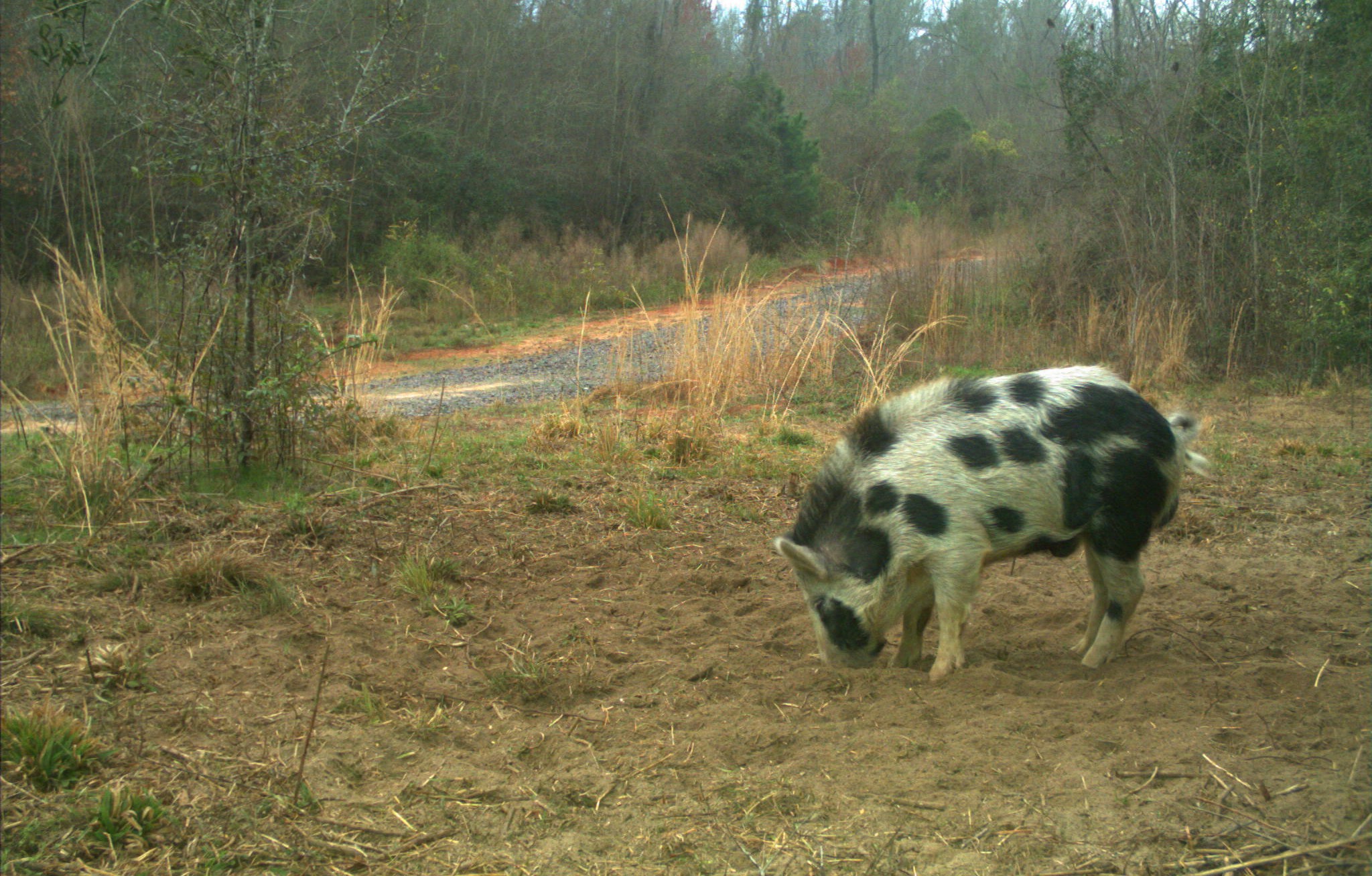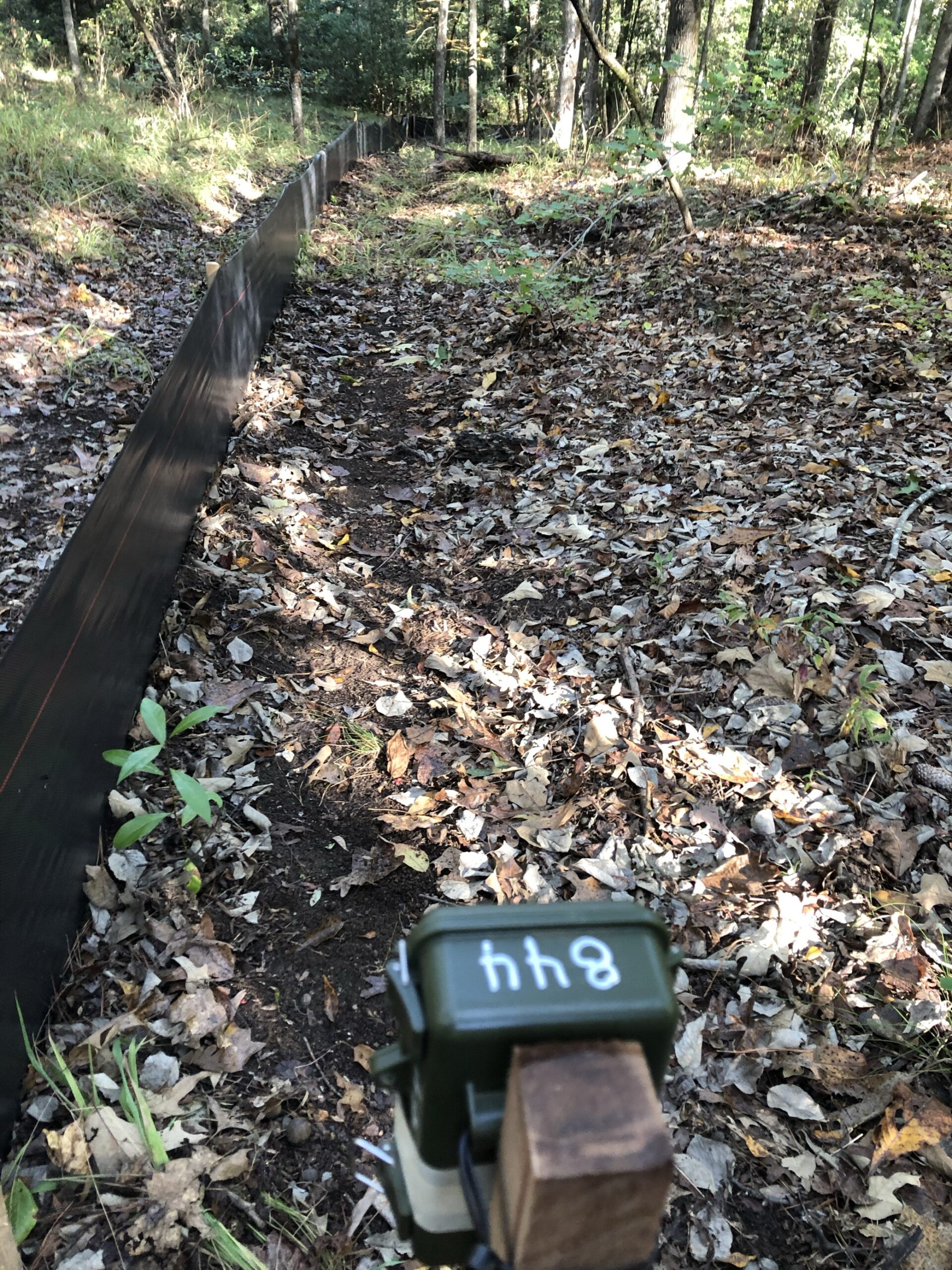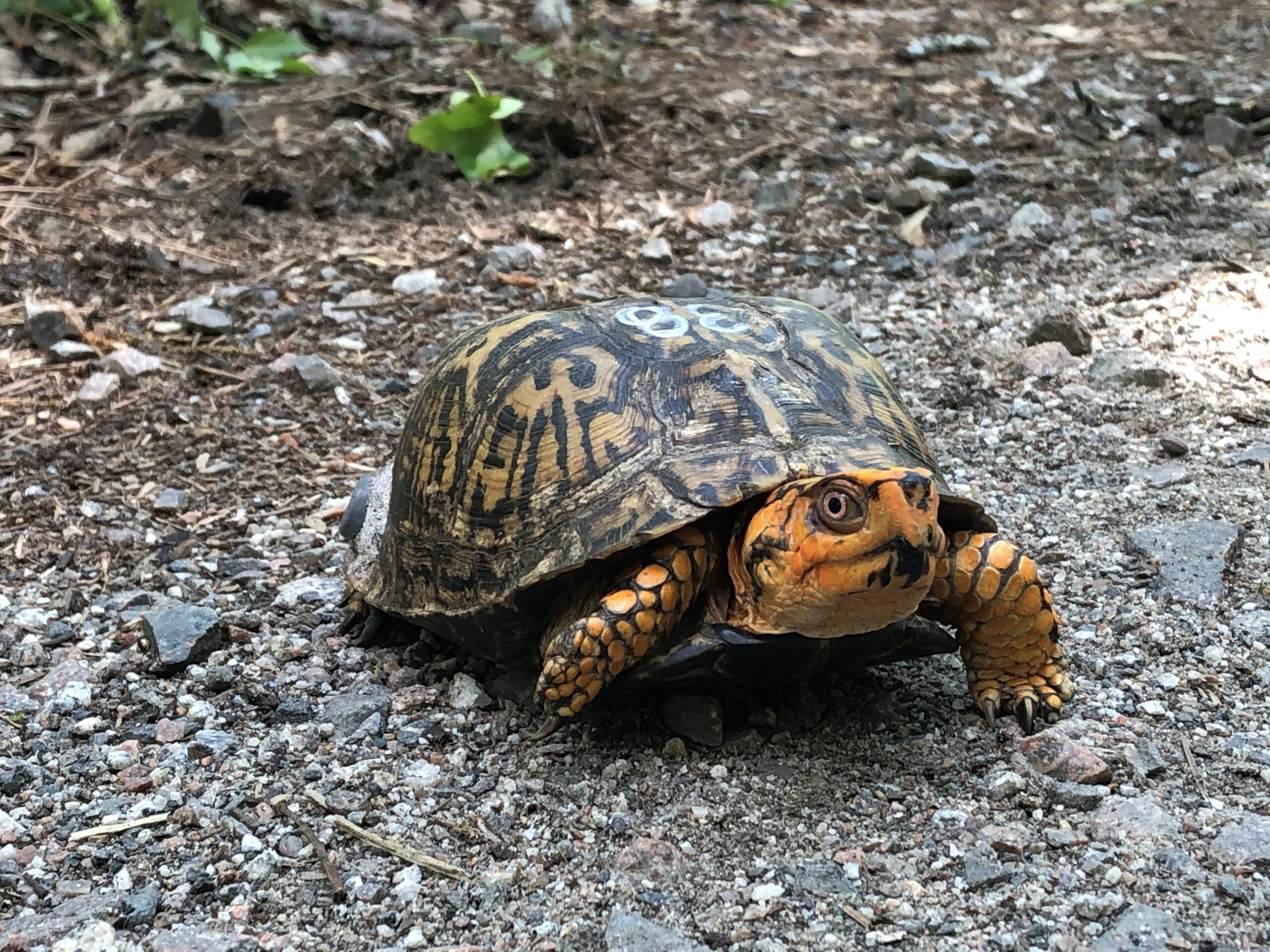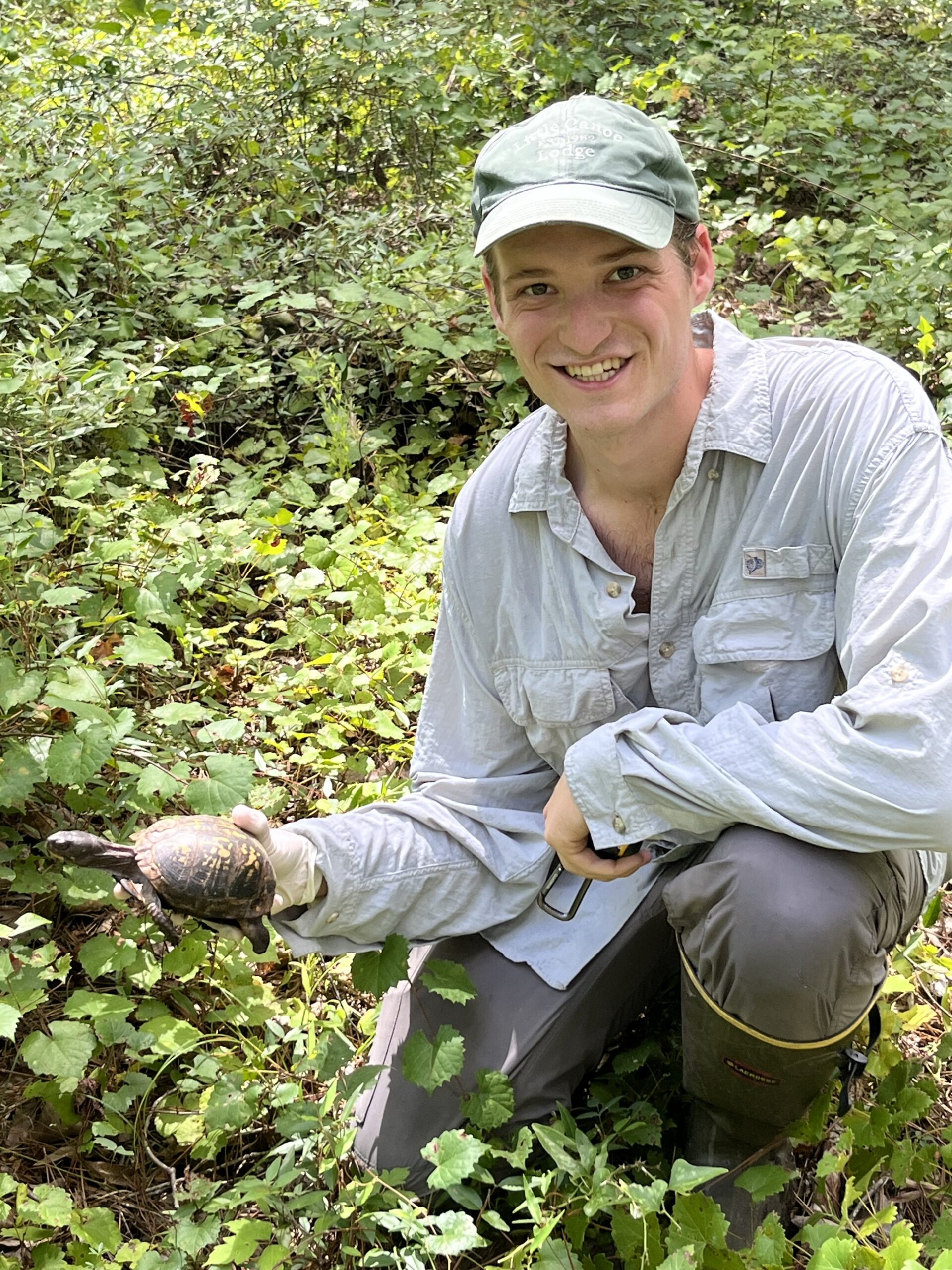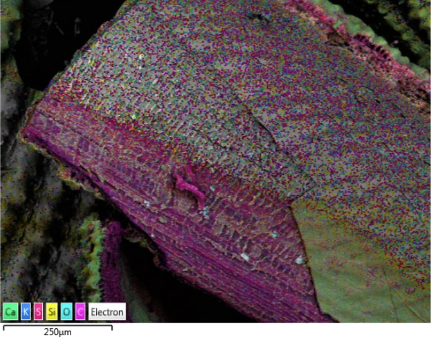Holding On or Letting Go: How Freshwater Species Manage Radiocesium Exposure
By Tyjaha Steele

As legacy nuclear sites shift toward long-term stewardship, understanding how contaminants behave in the environment is critical for informed cleanup and monitoring decisions. Radiocesium (137Cs), a byproduct of nuclear fission, remains a concern due to its persistence and mobility through food webs. New research from the University of Georgia’s Savannah River Ecology Laboratory (SREL) and the Warnell School of Forestry and Natural Resources enhances our understanding of how freshwater aquatic species absorb and eliminate this contaminant, supporting future risk assessment and remediation strategies.
Led by former SREL and Warnell graduate student Kathryn Quinlin, the study was conducted at R-Canal, a waterway historically affected by reactor operations at the Savannah River Site (SRS). Researchers focused on four freshwater species: bullfrog tadpoles, red swamp crayfish, eastern mosquitofish, and American white-water lilies.
“These species were selected for their availability and because they represent distinct ecological roles such as primary producers, benthic omnivores, and pelagic carnivores,” says Quinlin. “Together, they provide a broader picture of how radiocesium moves through freshwater systems.”
To monitor contaminant uptake, researchers enclosed each species in mesh cages within the contaminated canal. After exposure, they transferred the organisms to a clean reference pond to observe elimination rates.
Bullfrog tadpoles absorbed radiocesium the fastest, reaching equilibrium in under nine days. Crayfish followed at just over 50 days, and mosquitofish took around 86 days to reach steady levels. Despite the slower uptake, mosquitofish and tadpoles reached similar radiocesium activity concentrations, both higher than those found in crayfish.
“These findings challenge the idea that sediment-dwellers always accumulate more contamination,” states Xiaoyu Xu, an associate research scientist at SREL and co-author on this study. “Tadpoles likely absorb more radiocesium due to their vascularized skin and higher metabolic rates, while crayfish have hardened exoskeletons and a slower metabolism, which may limit uptake.”
Once in the clean pond, tadpoles shed half their burden in under eight days, and water lilies cleared 137Cs at a similar rate (around 12 days). Crayfish eliminated the contaminant more slowly, with a half-life of 69 days, while mosquitofish took about 43 days.
Xu notes that, “Slower elimination in crayfish and mosquitofish is likely tied to traits like lower metabolism and less permeable surfaces. Tadpoles, kept in warm indoor tanks, were more active, whereas crayfish were outdoors in cooler weather and unable to molt, a pathway hypothesized to be important for shedding contaminants.”
Differences in radiocesium storage pools also affect how long species retain radiocesium and influence its persistence in aquatic systems. Tadpoles and water lilies likely store more radiocesium in short-term reservoirs, resulting in rapid cycling, which contrasts with the longer-term reservoirs where crayfish and mosquitofish are thought to be storing this contaminant.
Radiocesium’s persistence, even at very low concentrations, can quietly influence aquatic communities over time. By capturing these subtle effects, the research contributes to a deeper understanding of radioactive contaminants and their long-term consequences for ecosystem function.
“This study offers a direct comparison of radiocesium uptake and elimination for a variety of species under natural conditions. By documenting how species absorb and eliminate contaminants over time, the findings inform selection of bioindicator species, improve environmental modeling, and help guide monitoring and remediation at contaminated freshwater sites,” explains Beasley, a professor at SREL and co-author on this study. “This research also adds to the growing body of evidence that radiocesium cycling within aquatic food webs is complex and influenced by a myriad of biotic and abiotic attributes of ecological systems.”
The full study, Uptake and elimination of 137Cs in aquatic biota inhabiting a contaminated effluent canal, was published in the Journal of Environmental Radioactivity. Authors include Kathryn A. Quinlin, Danielle Hill, Xiaoyu Xu, and James C. Beasley.

